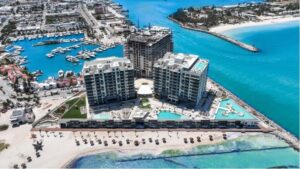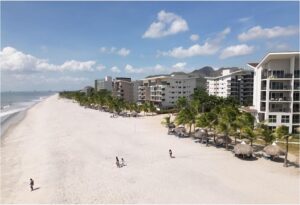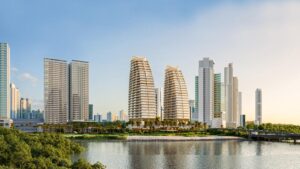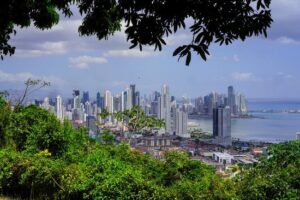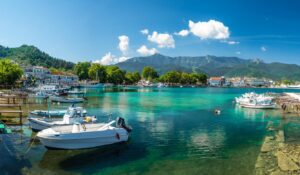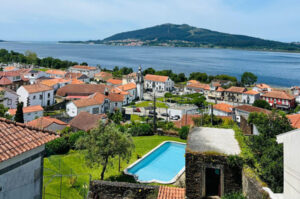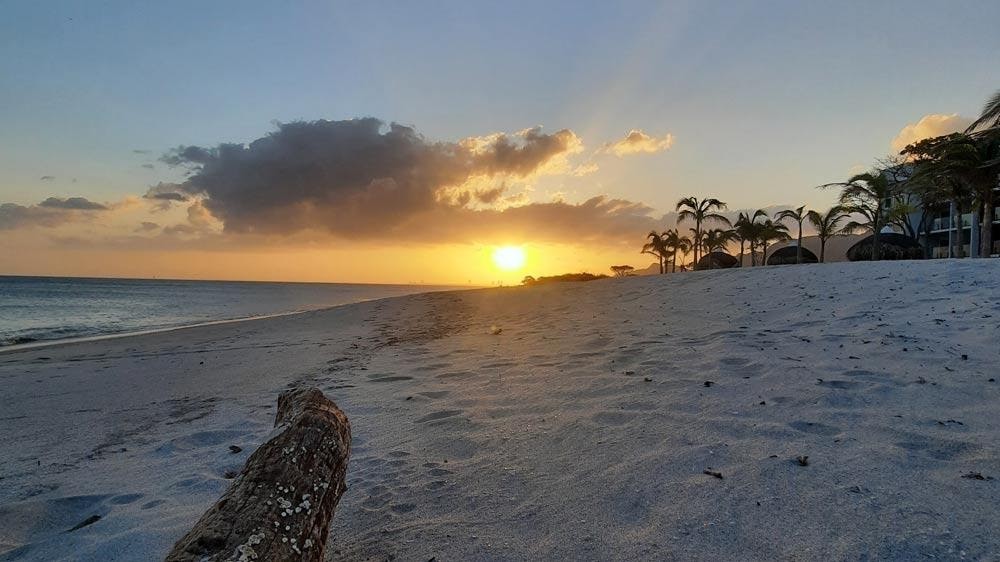Thursday, May 27, 2021
 Dear Your Overseas Dream Home Reader,
Dear Your Overseas Dream Home Reader,
A false economy is defined as “an apparent financial saving that in fact leads to greater expenditure.”
In the course of real estate scouting, I come across quite a few…
For instance, here on Portugal’s Algarve, I’m told that a number of real estate agents sold their own personal homes at the start of the pandemic last year.
They got spooked by the lockdowns and thought they could make a packet by selling while the price was good. Then they could buy back for less in the ensuing crisis.
Trouble is, they didn’t count on the price going up…and availability going way down.
Now, these real estate agents are the wealthiest homeless people on the Algarve. They can’t find anywhere to buy or rent. One agent sold her villa for over $800,000 and now would struggle to get a nice two-bedroom condo in the same area for that price.
Turns out their sell high and buy low play was a false economy.
What they missed, and what we understood here at RETA, is that the events of the past 15 months only accelerate the trends making the Algarve and other similar locales more desirable, thus driving real estate values…
They were selling. We were buying.
We were buying because of the long- and medium-term case. But also because we had extra negotiating power due to market jitters.
Today, my senior researcher, Margaret Summerfield, discusses three more false economies that don’t pay in real estate.
One of which is very important to our latest RETA deal in Playa Caracol, Panama.
More on that below…
Wishing you good real estate investing,
|
|
Ronan McMahon, Real Estate Trend Alert
***
Three False Economies That Don’t Pay in Real Estate
By Margaret Summerfield
My mother-in-law is the epitome of frugal. She’s never had any financial woes or shortage of cash, but her default position is to save money wherever possible. Admirable, you might think. But at times it tips over into the surreal.
On one visit, her fridge was piled with yoghurt. Why so much yoghurt, we asked. Oh, she replied, it was on offer at the supermarket, I couldn’t resist. Go ahead, help yourself if you want one. That’s when we noticed they were all the same flavor—melon.
We’ll skip it, we said, we’re not a fan of melon yoghurt. Me neither, said my mother-in-law. But I’m hoping it will grow on me.
It didn’t. The yoghurt ended up in the garbage. The savings…well, a false economy. She’d have done better to buy her favorite flavor and pay full price.
A false economy is one that looks like saving you some money initially but ends up costing more in the long run. With yoghurt, the worst-case scenario is you lose maybe five or 10 bucks. But in the world of overseas real estate, there are some false economies that can cost an awful lot more.
There are three that spring to mind straight away. The first is not hiring an attorney. I would say that this is a common factor with more than 90% of folks I’ve met or connected with who had major issues with their real estate purchase. When asked why they hadn’t hired an attorney, they all said the same thing: It costs too much money.
The few thousand bucks they would have paid the attorney was small fry compared to the losses they faced. It’s a little like folks who vacation overseas and skip buying medical insurance. Nothing will happen to me, is their thinking…and that couple of hundred bucks I’ll save will go towards a fancy meal or a massage. Of course, every year, something happens to lots of folks on vacation—and those without insurance are often left with enormous bills they can’t pay.
The second false economy is paying 100% cash upfront on a pre-construction property. Developers will give you a discount for doing so. In the mind of an investor, those discounts will boost capital appreciation and rental yield. For lifestyle buyers, the cash saved can go towards closing costs or furniture.
But you’re buying a property that isn’t yet built. You’re relying on the developer to deliver what he promises. He’s promising you a luxury condo delivered on a certain date and looking a certain way. He’s promising clear title on the property and that all permits and approvals will be in place. He might even promise a social area, swimming pool, and swish amenities.
What if the developer doesn’t deliver what he promises? If you pay 100% cash upfront you’ve got no leverage. It’s easier to negotiate if you’ve still to pay a chunk of the purchase price. The developer knows he’ll only get that final sum when you get what he promised.
Below, Ronan explains the best way to protect yourself when buying pre-construction.
My third and final false economy is one I’ve come across countless times. You’re buying a home…and the seller asks you to under-declare the value on the deed. It will save you property tax, the seller tells you, and save me capital gains tax. A win-win for both parties.
Not so much. It’s illegal to do this in much of the world. And in, say, Latin America (where I’ve come across it most often) the annual property tax is typically very low, while capitals gains taxes are significantly higher. Under-declaring the value means that when you come to sell, you’ll pay more capital gains. I won’t even go into the horror story of a couple who purchased in Ecuador, under-declared the value, and then got notice of eminent domain—and the value of their home was deemed to be that registered on the deed, a fraction of its true market value. The pittance they’d saved on property tax cost them a huge sum of money…and a lesson learned the hard way.
***
Ronan says: As Margaret points out, paying 100% cash on a pre-construction deal looks like it saves money on paper, but it’s not the best way to reduce risk.
Where possible, I always recommend using financing. This allows you to partake in a deal, locking in the potential gains, while minimizing your financing exposure.
Likewise, financing helps you free up capital, maximizing leverage, and allowing you to use your money elsewhere.
The trouble is, it’s not easy to get bank financing in Latin American counties. That’s why, with many of the special off-market deals I bring to members of my Real Estate Trend Alert, I negotiate exclusive developer financing.
Developer finance is, as the name suggests, where a developer finances a piece of the real estate you buy from him—he’s the bank.
It’s most commonly offered for pre-construction properties and in markets where bank finance is extremely difficult to get for foreign buyers and/or prohibitively expensive.
For instance, on our upcoming deal in Playa Caracol on Panama’s Pacific Riviera, I’ve negotiated exclusive developer financing which allows RETA members to spread out their payments throughout the construction period, and then have the option to take 50% financing for five years after the condos are delivered.
|
|
Of course, we also minimize risk by working with the very best-in-class developer. Someone with a proven track record of delivering top-notch projects.
That’s what we have at Playa Caracol…
The pioneering developer behind our latest opportunity is Alfredo Aleman. He has been delivering results for RETA members for years.
In fact, just last week I told you about another community by Alfredo, Seascape on the private island community of Ocean Reef. For that, Alfredo literally created islands from nothing in the middle of Panama Bay.
At Playa Caracol, Alfredo is creating a best-in-class master-planned community on the closest, nicest beach to Panama City. Plans call for boutique stores, markets, restaurants, bars…everything you could want from a self-contained community.
Like I say, we’ve been working with Alfredo for years and I’ve seen what he can deliver, so I have every confidence he will deliver here too. In fact, what I love about this pre-construction deal is that much of the community is already built, removing much of the risk. Alfredo has already spent serious money installing infrastructure, and last I checked he had delivered 300 units in Playa Caracol.
Like what you’re reading?
Send your thoughts to fe******@******************rt.com. I’ll post and respond to as many of your emails as I can right here in the e-letter. Find out more about our feedback policy here.
Your Comments and Questions
Leo says: Hi, I have been a RETA member for almost a year. I am considering retiring in Portugal. I am planning a trip this year in August. I am looking to revisit Lisbon. This time I would like to explore Porto, the Silver Coast, and the Algarve. Please recommend if the Silver Coast would be a good place to stay since it’s one hour from Lisbon. I am trying to stay in a place that is centrally located. Reading your reports about Portugal, I hope staying in the area for a month could give time to research the different places. I would like your opinion on how to best tackle this objective. I am already getting information from Ideal Homes. Also, my wife is a real estate broker for 25 years. We are also interested in investing in bank foreclosures like you did in the Algarve. Ronan says: Hi Leo, in my opinion August is the worst time of the year to visit The Algarve. It’s really busy. If you have a month, I’d suggest taking the last two weeks in August and first two in September. You could base yourself in the Silver Coast for two weeks, and the Algarve for the two weeks in September. From the Silver Coast you could explore Lisbon and maybe get the train to Porto for a few days. Driving/parking in Porto is tricky, so the train and three days sightseeing is a nice way to do it. In the Algarve I’d recommend Lagos but maybe also pick a place in the eastern Algarve and stay there for a few days too to get a flavor of that side.
Connect with us on Instagram |


